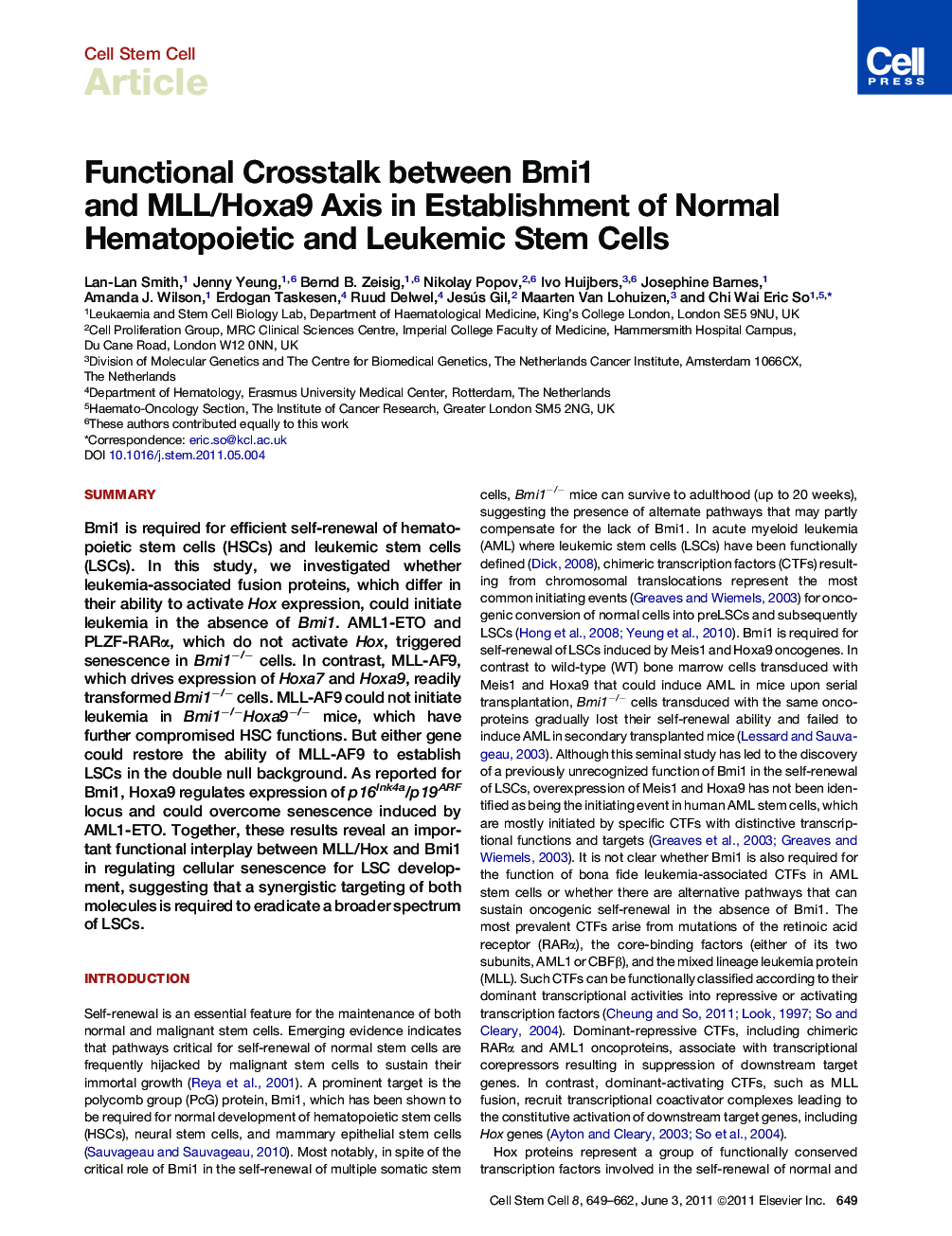| کد مقاله | کد نشریه | سال انتشار | مقاله انگلیسی | نسخه تمام متن |
|---|---|---|---|---|
| 2078537 | 1079797 | 2011 | 14 صفحه PDF | دانلود رایگان |

SummaryBmi1 is required for efficient self-renewal of hematopoietic stem cells (HSCs) and leukemic stem cells (LSCs). In this study, we investigated whether leukemia-associated fusion proteins, which differ in their ability to activate Hox expression, could initiate leukemia in the absence of Bmi1. AML1-ETO and PLZF-RARα, which do not activate Hox, triggered senescence in Bmi1−/− cells. In contrast, MLL-AF9, which drives expression of Hoxa7 and Hoxa9, readily transformed Bmi1−/− cells. MLL-AF9 could not initiate leukemia in Bmi1−/−Hoxa9−/− mice, which have further compromised HSC functions. But either gene could restore the ability of MLL-AF9 to establish LSCs in the double null background. As reported for Bmi1, Hoxa9 regulates expression of p16Ink4a/p19ARF locus and could overcome senescence induced by AML1-ETO. Together, these results reveal an important functional interplay between MLL/Hox and Bmi1 in regulating cellular senescence for LSC development, suggesting that a synergistic targeting of both molecules is required to eradicate a broader spectrum of LSCs.
Graphical AbstractFigure optionsDownload high-quality image (288 K)Download as PowerPoint slideHighlights
► MLL-AF9, but not AML1-ETO, is capable of establishing LSCs in the absence of Bmi1
► Ablation of Hoxa9 abolishes Bmi1-independent establishment of MLL LSCs in Bmi1−/− cells
► Hoxa9 suppresses expression of p16Ink4a and p19Arf and senescence
► Synergistic targeting of Bmi1 and Hox pathways is required for certain LSCs
Journal: - Volume 8, Issue 6, 3 June 2011, Pages 649–662